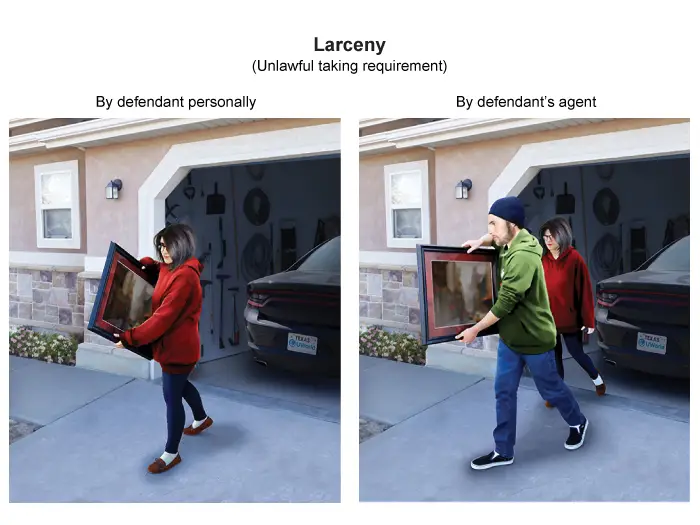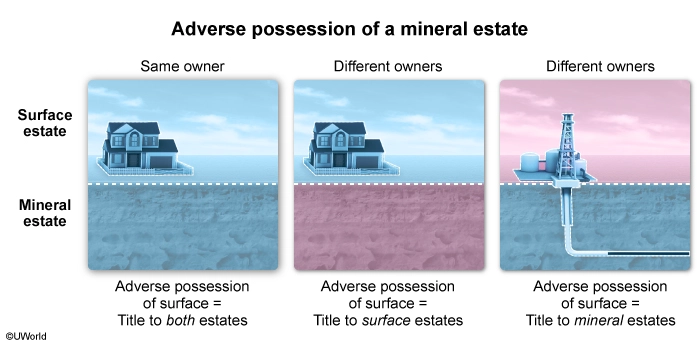Real Property
Real Property includes anything that grows on, attaches to, or is erected on land, including structures, roads, sewers, and fences that are man-made, except for anything that may be removed from the land without causing harm. Man-made objects are improvements, while vacant land is unimproved.
Real Property law relates to the land, things growing on the land, buildings, or other man-made improvements on the land, and excluding things that can be removed without injury to the land. Examples include real estate conveyances, title searches, leases, condominiums, mortgages, other liens, property taxes, real estate development, real estate financing, and determining property rights. The government administered the first Multistate Bar Examination (MBE®) in 1972 to 4,955 examinees from 19 jurisdictions.
Real Property Breakdown by Topic, Weightage, and Tested Questions
The Real Property outline is based on the Real Property subject area proposed by the National Conference of Bar Examiners (NCBE®). The tested Real Property categories and sub-topics within each category are well listed. On the Multistate Bar Examination, there are 175 scored questions, 25 from every subject area: Constitutional Law, Civil Procedure, Criminal Law and Evidence, Contracts, Evidence, Torts, and Real Property. Real Property Law on the MBE will account for roughly one-fifth of all Real Property MBE questions. There are about five questions in each category of the NCBE's subject.
Here is what you should expect:
| Real Property Subtopics | % Tested | No.of Questions |
|---|---|---|
| Ownership of real property | 20% | 5-6 |
| Rights in real property | 20% | 5-6 |
| Real estate contracts | 20% | 5-6 |
| Mortgages/security devices | 20% | 5-6 |
| Titles | 20% | 5-6 |
| Total scored questions for Real Property | 25 | |
Ownership of Real Property
On the MBE, you will find about five questions on property ownership. It is important to remember that grammar is crucial when answering these questions. As part of its testing, the NCBE likes to examine the differences and nuances between joint and common tenancies. Concurrent estates are properties owned by more than a single entity at a time. Some have rights of survivorship, while tenants in common do not.
Present estates and future interests
In present estates, the holder of such an interest has the right to possession of the property. In the law profession, the meaning of fee simple is ownership without encumbrances. There is no time limit on how long a fee simple estate can last, and it can be sold, divided, devised, or inherited.
A defeasible fee is a fee simple estate that may terminate upon the occurrence of a stated event, i.e., when the estate is uncertain in duration or possibly infinite in duration. In most cases, a lifetime property, known as a life estate, is measured by the grantee's life expectancy (for example, "to A for life"). Language such as "to B after the death of A" can imply such a life estate.
Future interests
Reversions Future Interests in Transferor happen when a grantor conveys less than she owns (e.g., O conveys "to A for life"; O has a reversion). You can alienate, devise, and inherit a reversion. Future interests such as Remainders, both vested and contingent, take place when their creation is dependent on an unborn child or an unascertained person.
Executory interests are interests in third parties after a grantor's estate is abandoned ("shifting interests") or after a gap in possession ("springing interests"). Possibilities of reverter, powers of termination; an estate's future interest gives its holder the right or possibility of future possession—a legal right in the present and protected property.
Rules affecting these interests (including survivorship, class gifts, waste, and cy pres): If survival is not an express condition (e.g., "to a for life and then to his surviving children"), the class member cannot share in a future gift. A widow, issue, heir, or next of kin are implied survivorship conditions.
Cotenancy types
The right of survivorship distinguishes a joint tenancy from a tenancy in common. Joint tenants lose their simultaneous interests in the property when one dies (their survivors do not inherit it). The rights and obligations of co-tenants include a right to judicial partition, either in kind (a physical land division between co-tenants) or by sale. The courts will permit partition by sale if a fair and equitable physical division of the property is not possible.
Severance of a tenancy in common can result when the right of survivorship is terminated (i.e., terminated). Because co-tenants have an equal right to possess and use the entire property, relations among co-tenants can become strained when faced with the challenges of meeting all requirements.
Landlord-tenant law
As a general rule, there are four types of tenancy agreements: fixed-term, periodic, boarding house, and service. In possession and rent, leases with a "failure to deliver possession" clause stipulate that the tenant does not have to pay until the landlord delivers possession. Transfers by landlord or tenant happen if the parties agree otherwise or if there is a tenancy at will. Landlords' and tenants' interests can be freely transferred.
Termination includes surrender, mitigation of damages, anticipatory breach, and security deposits. In most jurisdictions, residential leases include an implied warranty of habitability and suitability that cannot be waived, and local housing codes dictate the landlord's duties.
Special problems
The rule against perpetuities: common law rule and statutory reforms: The perpetuity period begins when: (1) the testator dies, (2) the deed is delivered, (3) the irrevocable trust is created, (4) the revocable trust is revoked.
Alienability, descendibility, and divisibility of present and future interests: There is no need to reserve it expressly; it arises by operation of law. Fair Housing/discrimination is covered well by the Fourteenth Amendment. The Fourteenth Amendment prohibits discriminatory state actions, such as judicial enforcement of racial, religious, or ethnic restrictions on property transfers and uses.
Conflicts of law often relate to disputes involving Real Property: The following methods of description are given priority when descriptions are inconsistent or conflicting: natural monuments (e.g., oak trees), artificial monuments (e.g., stakes, buildings), angles, distances, names (e.g., Blackacre); and quantities (e.g., 300 acres).
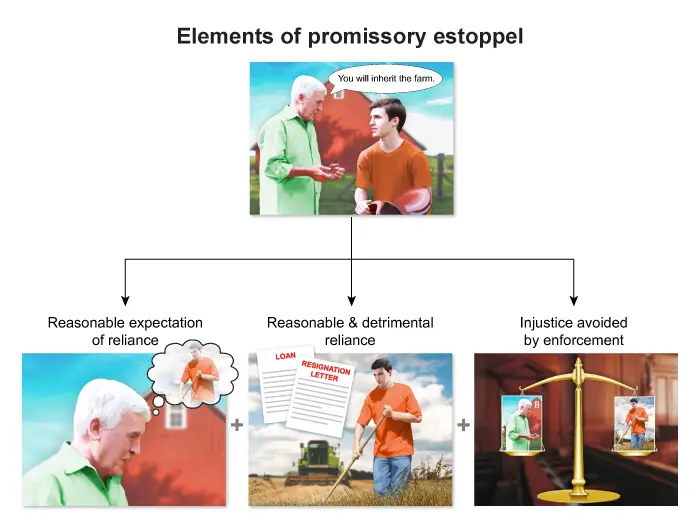
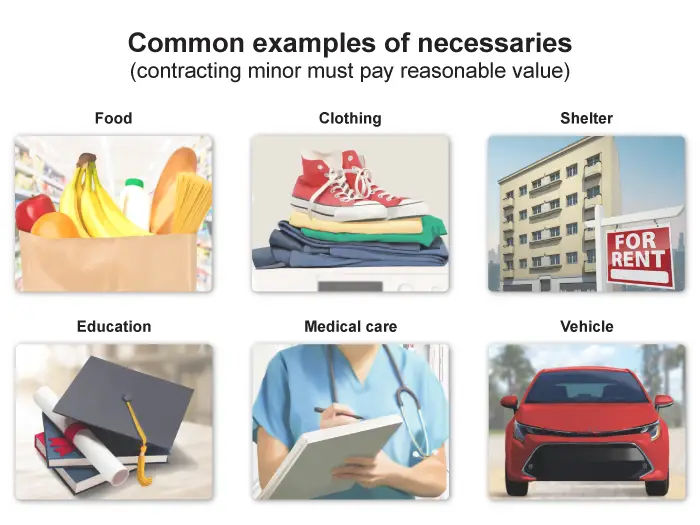
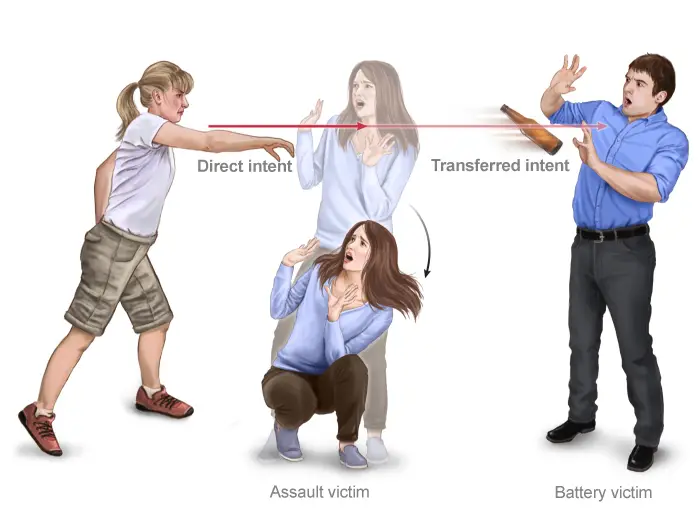
Rights in Real Property
As a general rule, there are four types of tenancy agreements: fixed-term, periodic, boarding house, and service. In possession and rent, leases with a "failure to deliver possession" clause stipulate that the tenant does not have to pay until the landlord delivers possession. Transfers by landlord or tenant happen if the parties agree otherwise or if there is a tenancy at will. Landlords' and tenants' interests can be freely transferred.
Termination includes surrender, mitigation of damages, anticipatory breach, and security deposits. In most jurisdictions, residential leases include an implied warranty of habitability and suitability that cannot be waived, and local housing codes dictate the landlord's duties.
Easements, profits, and licenses
Easements are attached to real property and exist distinct and separate from the ownership of such property. Methods of creation include:
The scope and apportionment are primarily determined by how the easement is created. A deed or reservation that creates an express easement defines its scope. Since easements are attached to the property, they run with the property regardless of transfers of property through sales or other means.
Easements are terminated by the sale of the servient estate to a bona fide buyer without actual or constructive knowledge that the easement exists.
Unlike easements, there can be a fixture to a property. Fixture refers to a chattel affixed to land that ceases to be personal property and becomes a part of the real estate. Fixtures pass with land ownership.
Zoning (fundamentals other than regulatory taking)
Protection of pre-existing property rights: A zoning ordinance is generally invalid if it lacks a reasonable connection to public welfare, is too restrictive, discriminatory, beyond the grant of authority, violates due process, or violates racial discrimination. The existence of violations of zoning laws and ordinances does not affect marketability.
Real Estate Contracts
The NCBE likes to test marketable titles. A good title is reasonably free of defects and must be presented at closing. NCBE loves pushing this issue.
- The real estate contract must be in writing and contain the essential terms (e.g., parties, description of the land, price) and the signature of the party charged.
- Creation and construction: Acts of part performance may prove the existence of a contract, allowing enforcement of otherwise invalid oral contracts of sale.
- For leases over one year, a writing is required under the Statute of Frauds.
- The time for performance must be clearly defined.
- If all remaining term is transferred, it is considered an ASSIGNMENT.
- In real estate contracts, a signature is required unless an exception applies for part performance.
Remedies exist for the breach of any valid contract. Upon breach of the lease, the tenant may be entitled to reenter the property. In the case of a non-breaching party, DAMAGES (the difference between the contract price and the current market price, plus incidental costs) are available.
Concerning the marketability of title, except where expressly stated otherwise, every land sale contract contains an implied covenant of marketability. Further, the land-sale contract creates a bifurcation of title, where legal and equitable conversion (including the risk of loss): The land-sale contract creates a bifurcation of title, where legal and equitable titles pass to each party. Covenants in a land-sale contract become part of the deed when the sale is completed, resulting in a merger.
Options and rights of first refusal: A right of first refusal or option to purchase which could be exercised later than the end of the perpetuity period is generally invalid. For fitness and suitability, the seller further has a duty to disclose latent material defects not readily visible and unknown to the buyer.
Mortgages/Security Devices
On the MBE, you will find about five questions regarding mortgages and security devices. It is essential to keep in mind that a mortgage is a document that is used to prove the existence of a debt. Focus on the language used by the mortgagor during the transfer of Property. The NCBE likes to test the distribution of proceeds from foreclosure sales. Always remember the order in which mortgages will be repaid.
Types of security devices
The Statute of Frauds requires mortgages to be in writing. In general there are four types of security interests recognized by law: mortgages, charges, pledges, and liens.
- Mortgages given for purchase money are known as purchase money mortgages ("PMMs").
- Future advance mortgages are currently executed, but the funds won't be accessed until a later date.
- Installment land contracts where purchasers agree to pay for land in installments.
- The final type of security device is an absolute deed as security, where the debtor borrows money, then issues a deed that appears absolute to the creditor.
Security relationships
The necessity and nature of the obligation will determine the security relationship. When a landowner sells part of his tract of land and, by doing so, deprives another person or entity of access to public roads or utilities. As defined by lien theory, mortgage theories hold that a mortgagee has a security interest in the property, and the mortgagor owns the property until foreclosure.
The rights and duties before foreclosure hold that in possession, the person has the responsibility to manage the property prudently (i.e., not to waste it). The right to redeem and close the equity of redemption holds that if the debtor pays off all his debts against the property (all payments due and fees), the foreclosure will be stopped.
Foreclosure
Notes and mortgages with acceleration clauses must be redeemed in full in order to redeem. Parties to the proceeding: In order of priority, proceeds are applied to expenses of the sale, attorneys' fees, and court costs; then to the FORECLOSED LOAN principal and accrued interest; and finally to the MORTGAGOR.
Deficiency and surplus hold that the mortgagee retains a personal cause of action against the mortgagor if the proceeds are insufficient to satisfy the mortgage debt. In equity, the mortgagor may redeem the property at any time before the foreclosure sale by paying the debt.
Transfers
The mortgagor can transfer property by assumption and transfer subject to Grantees become PRIMARY liable to lenders, while the original mortgagor becomes a SURETY. As a result of every mortgage deed, the mortgagor and mortgagee have both rights and obligations.
The application of subrogation and suretyship principles will not impede the surety’s rights of subrogation, even if the suretyship is for compensation. Restrictions on transfers include due-on-sale clauses found in most modern mortgages. These clauses give the lender the right to insist on full payment after the mortgagor transfers any interests in the property without their consent.
Transfers by mortgagees include the discharge of the mortgage. As a mortgage secures an obligation (e.g., due consideration,duress, mistake, fraud), defenses in an action against the mortgage are also defenses in an action against the obligation.
Titles
The MBE will have about five questions on the title to the property. The recording act affects not only priority battles regarding the title to the property but also mortgage priority. Therefore, the NCBE offers many opportunities to test your recording knowledge! It is possible to change the common law result through a recording act. Remember the rule of common law: first in time, first in the right.
Remember the general rule of adverse possession: A title vests in a possessor if the owner does not take action to evict him within the statutory period.
Transfer by deed
To be valid, a deed does not require donative intent, delivery, or acceptance consideration.
Requirements for deed
A valid deed requires (1) writing, (2) competent grantor, (3) grantee identity, (4) words of conveyance, (5) an adequate description of the land, (6) consideration, (7) grantor signature, (8) witnesses, and (9) grantee receipt.
Types of deeds (including covenants for the title): A GENERAL WARRANTY deed, a SPECIAL WARRANTY deed, and a QUITCLAIM deed may all be used to convey property interests that are not leaseholds.
Drafting, reviewing, and negotiating closing documents: Real estate contracts outline the crucial details of the sale, such as closing dates, possession dates, keys transfers, who pays utilities and property taxes, what items remain with the land, and how the seller will leave it in good condition.
Persons authorized to execute documents
An individual's signature is required on all documents requiring the buyer's signature during a real estate closing. Usually, photo identification is required.
Transfer by operation of law and by will
In general: In a will, a grantor specifies how they want property disposed of at their death. With an ademption, the property specified in the will no longer belongs to the estate when the testator dies. In common law, exoneration applies when a testator dies owing a mortgage debt on property devised in a will. A gift to a named beneficiary that is not provided for in a Will expires if the beneficiary predeceases the testator.
Title assurance systems
Recording acts ensure the subsequent purchaser of value must have been aware of a covenant at the time the purchase was made, whether by inquiry or on record. Land registration and land recording are two types of title systems used worldwide. The information is stored in indexes. When searching TRACT INDEX, the searcher looks at the page indexed by block and/or lot describing the property.
A chain of title records ownership transfers for property and is imperative to establishing ownership of all manner of real property. A deed from a subsequent purchaser is recorded in the chain of title, allowing a subsequent purchaser to be entitled to record notice. There are always hidden risks, such as undelivered or forged deeds. In void deeds, the grantor may have been deceived or never received the deed (i.e., she did not realize she was making a deed).
Title insurance
Title insurance guarantees the existence of a good record title to the property as of the policy's date and promises to defend the title in litigation. It is possible to encounter unique problems, including estoppel by deed and judgment and tax liens. There are also covenants in some General Warranty Deeds. A covenant of seisin states that the grantor possesses the estate she purports to convey. When the grant is made, she must have both title and possession.
How to Study for Real Property on the MBE
Multistate Bar Examcovers many areas of law, but they aren't necessarily equally tested! Focus on the areas within a sub-topic most likely to appear on an MBE. For example, Civil Procedure questions on the MBE tend to focus more on jurisdiction and venue than appealability or review.
Know about highly tested issues
The right content is crucial. Even though it might sound like common sense, you must study the right material. For instance, the NCBE booklet outlines frequently tested issues for each subject.
Among them are:
- Contacts of sales and closing, which must be in writing, contain the correct legal language and terms, and satisfy an implied warranty of transferable title.
- Recording Acts which often use the common law default rule of “first-in-time, first-in-right”.
- Title and lien theories determine the destination of the title.
- Present and future interests are covered in more detail above.
Concurrent estates which are divided into three types: 1) Tenancy in common, 2) joint tenancy, and 3) tenancy by the entirety.
It is important to remember that the MBE is a national exam. It is therefore recommended that you ignore local laws and research the views of majorities and minorities. Seven subject matter committees draft the MBE questions, so they handle each Real Property MBE practice question individually.
Practice
The bar exam requirements call for lots of knowledge and memorization. Keeping up with all the legal terms and laws is challenging. Mnemonics and flashcards can be useful here. An acronym, a memorable phrase, or a saying can be a mnemonic device for memorizing key rules and terms.
A flashcard, however, can include a quiz, a practice question, or both. Combining these two study methods will make you better prepared for the MBE.
Real Property Bar Exam Sample Questions and Answers
Now that you know what to expect on the MBE let's tackle a sample Property Law questions from UWorld's MBE QBank:
Twenty years ago, a man who owned a 20-acre ranch agreed to sell all of his mineral rights to his neighbor. The man executed a warranty deed conveying the mineral estate to the neighbor, who failed to record the deed.
The following year, a woman moved her mobile home onto an undeveloped five-acre portion of the man's ranch. After the woman had lived on the property for 10 years, a local drilling company began operations on a nearby tract to drill a natural gas well. Believing that the woman owned the property, the drilling company approached the woman about leasing the mineral rights on her property and requested that the woman sign a lease of her mineral rights. The woman signed the lease as requested, and it was promptly and properly recorded. The drilling operations were successful, and the drilling company prepared to distribute profits from royalties. However, a dispute arose between the neighbor and the woman, as both parties claim ownership of the minerals.
The period of time to acquire title by adverse possession in the jurisdiction is 10 years.
In an action to determine title, is the court likely to award title to the mineral estate to the woman?
- No, because the woman actually possessed only the surface estate that had previously been severed from the mineral estate.
- No, because the woman did not actually possess the mineral estate until she signed the lease of the mineral rights.
- Yes, because the neighbor failed to record the warranty deed conveying the mineral estate.
- Yes, because the woman adversely possessed both the surface estate and the mineral estate for the statutory period.
An adverse possessor can acquire title to land owned by another if his/her possession of the land is:
- Open and notorious – apparent or visible to a reasonable owner
- Continuous – uninterrupted for the statutory period
- Exclusive – not shared with the owner
- Actual – physical presence on the land and
- Nonpermissive – hostile and adverse to the owner.
If the surface and mineral estates are owned by the same party, then the adverse possessor will acquire title to both estates—even if only one estate is actually possessed. But if the mineral estate has been severed from the surface estate (ie, the surface and mineral estates are owned by different parties), then the adverse possessor will only acquire title to the estate that is actually possessed. The mineral estate is actually possessed when the adverse possessor mines or drills wells on the land.
Here, the neighbor purchased the mineral estate from the man, thereby severing the mineral estate from the surface estate. And since the woman merely lived on the property for the 10-year statutory period—she did not attempt to mine or drill a well on the mineral estate—she actually possessed only the surface estate during that time (Choice D). This means that the woman did not adversely possess the mineral estate, and the court is not likely to award her title to that estate.
(Choice B) Adverse possession of a mineral estate requires the commencement of drilling or mining operations. Merely signing a lease of the mineral rights is not enough.
(Choice C) A deed need not be recorded to be valid, so the neighbor's failure to record has no impact on whether the woman adversely possessed the mineral estate.
Educational objective:
If a mineral estate has previously been severed from the surface estate (ie, surface and minerals owned by different persons), then an adverse possessor can only acquire title to the mineral estate by actually possessing the minerals (eg, by mining or drilling wells).
A baker borrowed funds from an investor to purchase a plot of land on which the baker planned to build a new bakery. In order to secure repayment of the loan, the baker signed a nonnegotiable promissory note and executed a mortgage to the investor.
Five years later, the investor sold her promissory note to a credit union by endorsing the note and promptly delivering it to the credit union. Due to a downturn in business, the baker was unable to make payments on the mortgage. The credit union now seeks to foreclose on the baker's plot of land.
If the court denies the credit union's foreclosure, what is the most likely reason?
- The mortgage required a separate written assignment in order for the transferee-credit union to enforce the mortgage.
- The nonnegotiable promissory note required a separate document for assignment to the credit union, so neither the note nor the mortgage transferred.
- The transfer of the nonnegotiable promissory note modified the terms of the loan, resulting in a release of the baker's personal liability.
- The transfer of the nonnegotiable promissory note without the mortgage was void.
| Transfer of Promissory note & mortgage | |
|---|---|
| Transfer of both documents | Both documents are transferred unless:
|
| Transfer of note without mortgage | |
| Transfer of mortgage without note* | Transfer is void |
*Jurisdiction are split as to effect of transfer
To finance the purchase of real property, a borrower typically executes two documents that serve as evidence of the debt:
- Promissory note – a formal "IOU" that sets forth the terms of the loan. It is the primary evidence of the debt and is not recorded in the deed records.
- Mortgage (or deed of trust) – a lien that secures the loan by attaching the debt to a real property interest and providing a means of enforcement (eg, foreclosure). It is recorded in the deed records to provide notice of an outstanding debt attached to the real property.
A promissory note can be assigned to another (an assignee) independent of the mortgage (Choice D). The mortgage automatically transfers with the note once the note has been properly assigned (unless the parties agree otherwise) (Choice A). A negotiable promissory note can be assigned by simply endorsing and delivering the note to the assignee. However, a nonnegotiable promissory note requires a separate assignment document to transfer ownership.
Here, the investor sought to assign her nonnegotiable promissory note by endorsing and delivering it to the credit union. However, this type of promissory note requires that a separate document be executed to assign this interest. The investor failed to execute such a document, so the note (and therefore the accompanying mortgage) did not transfer to the credit union. And since the credit union has no security interest in the land, it cannot initiate foreclosure proceedings against the baker.
(Choice C) A transfer of the mortgagee's interest in the promissory note changes the party who receives payment on the note, but it does not change the terms of the mortgagor's obligation. Therefore, the transfer of the note did not modify the terms of the loan or release the baker's personal liability.
Although a negotiable promissory note can be transferred by endorsing and delivering the note to another, a nonnegotiable promissory note requires that a separate document of assignment be executed to transfer ownership.
- Restatement (Third) of Property: Mortgages § 5.4 (Am. Law Inst. 1997) (transfer of mortgages).
A worker took a temporary job of unknown duration in a distant state. The worker entered into a written agreement to rent a room in that state on a weekly basis, with the weekly period to start on Sunday and a weekly rent of $350, reflecting a per-day rental rate of $50, to be paid at the end of the week on Saturday. The worker occupied the room and paid the rent for several months before learning on a Tuesday that his job would be finished the following day. That same Tuesday evening, the worker gave an oral notice of termination to the landlord.
There is no applicable statute.
Assuming that the landlord is unable to find someone else to rent the room, how much rent is the worker obligated to pay?
- $150, because the worker's notice would terminate the lease immediately.
- $350, because the worker's notice would terminate the lease at the end of the current period, on Saturday.
- $500, because the worker's notice would terminate the lease seven days after notice was provided, on the following Tuesday.
- $700, because the worker's notice would terminate the lease at the end of the next full period, on the following Saturday.
| Types of Tenancies (leases on land) |
|||
|---|---|---|---|
| Type | Creation | Duration | Termination |
| Term of Years |
|
|
|
| Periodic Tenancy |
|
|
|
| Tenancy a will |
|
|
|
| Tenancy at sufferance |
|
|
|
A periodic tenancy lasts for a set period of time and then automatically renews at the end of each period (eg, on a weekly basis). Either party can terminate this tenancy at the end of a full period by giving the other party notice before that period begins. This means that notice given during the current period is effective to terminate the tenancy on the last day of the following period.
Here, the worker rented the room on a weekly basis (periodic tenancy), with the weekly period to start on Sunday. The worker gave an oral notice of termination to the landlord on a Tuesday evening, which was effective to terminate the worker's tenancy at the end of the next full period—the Saturday of the following week.* As a result, the worker is obligated to pay rent for the current week and the following week ($350 + $350), or a total of $700.
*An oral notice of termination is sufficient under the common law to terminate a periodic tenancy. However, most jurisdictions have enacted statutes that require some form of written notice (not seen here).
(Choice A) $150 represents the amount of rent that the worker would have been obligated to pay if his termination notice had ended the tenancy immediately. That is because the worker had occupied the room for the first three days of the week (Sunday through Tuesday), and the per-day portion of the weekly rent is $50.
(Choice B) $350 represents the amount of rent the worker would have been obligated to pay if his termination notice had been effective at the end of the current term.
(Choice C) $500 represents the amount of rent that the worker would have owed if his termination notice had ended the tenancy after the length of a period. This amount includes the $150 ($50 × 3) for Sunday through Tuesday and $350 for the seven days after notice was given.
Educational objective:
Either party can terminate a periodic (eg, week-to-week) tenancy at the end of a full period by giving the other party notice before the period begins. This means that notice given during the current period is effective to terminate the tenancy on the last day of the following period.
- Restatement (Second) of Property: Landlord & Tenant § 1.5 (Am. Law Inst. 1977) (periodic tenancy).
Copyright © UWorld. All rights reserved.
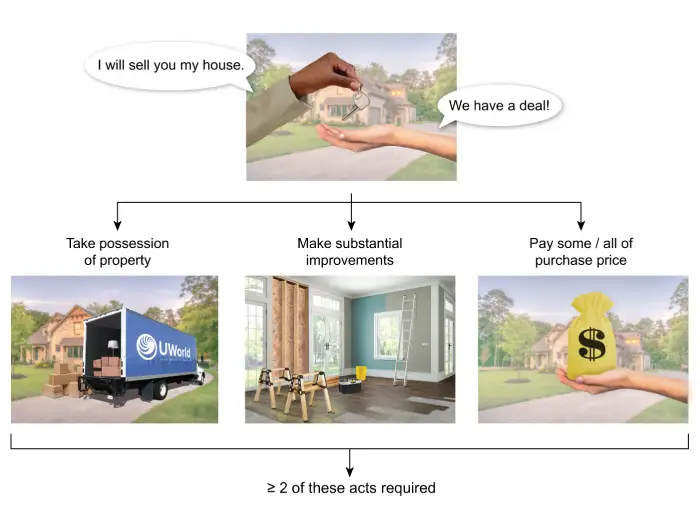
Frequently Asked Questions
What are the 5 Real Property topics covered on the MBE?
- Ownership in Real Property
- Rights in Real Property
- Real Estate Contracts
- Mortgages/Security Devices
- Titles
